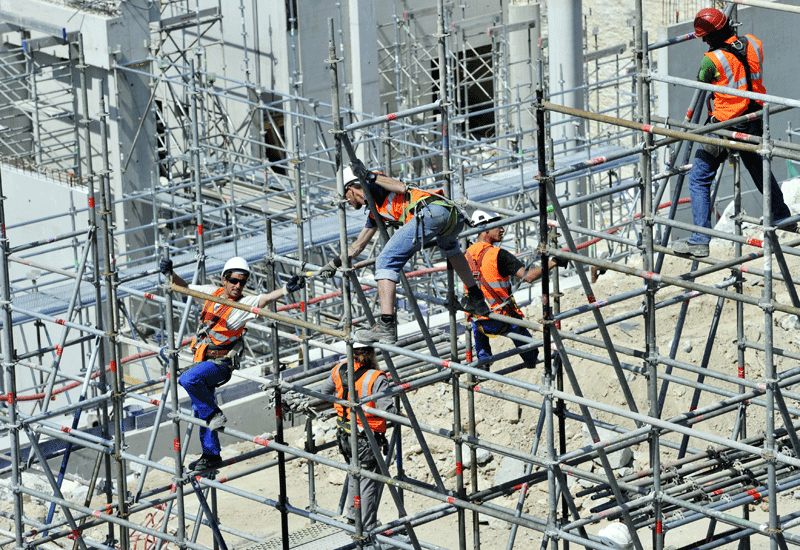
Muscat: An ambitious proposal to manufacture at least 80 per cent of all scaffolding used in Oman has been welcomed by the industry.
If a scheme to build two scaffolding factories in Sohar receives the green light, it will create hundreds of jobs.
The plants, run by Muscat International Resources and Triangle Engineering LLC, will be constructed in Sohar’s Industrial Area. The proposals has been put forth by Tanfeedh.
Oman currently imports about 80 per cent of the scaffolding used in the country from the UAE, and 15.4per cent from China and India, but an investment of OMR6.4 million in this sector will see about 80 per cent of Oman’s scaffolding needs being met locally.
Welcoming this, Shahswar Al Balushi, chief executive officer of the Oman Society of Contractors, said any industrial project was welcome as it would make the country self-sufficient. “This will help in creating jobs, avoiding imports and opening up export opportunities to other GCC countries,” he told the Times of Oman.
Currently, Oman has just one local manufacturer of scaffolding structures. Ahmed Sarhani Al Sarhani is Group Managing Director of Nafal Group, which has so far supplied more than 70,000 cubic metres of scaffolding to projects across the nation.
“In the next three years, there will be a huge demand for scaffolding in the oil and gas sectors in Oman, involving an investment of up to OMR250 million, in terms of contracts and hired materials,” said Al Sarhani.
With a 20 per cent year-on-year increase in demand, the need for scaffolding in the region is constantly growing. Demand for scaffolding in the Sultanate is set to reach OMR115.5 millionby 2020. Clearly, the sector is expanding in Oman at just the right time.
In addition to investing in manufacturing scaffolding, Tanfeedh directives also provide for training locals so that they acquire qualifications through training institutes, thus feeding the local industrial expansion.
“We have done a lot of projects, and you’re talking about large scale projects such as ORPIC’s expansion, as well as oil fields in Mukhaizna and Rabab Harweel,” added Al Sarhani. “These are multi-billion dollar projects with scaffolding demands of about OMR10million, and we will get a share of that. This is a very specialised technique and the specialists who erect them have to have certain licenses.
“One of our biggest projects was the construction of the Majlis of Oman,” he continued. “As a group, we wanted to take up projects on a turnkey basis in this sector because right now, we are importing the materials and then manufacturing the scaffolding. We, instead, want to ultimately be making this material, such as moulds for scaffolding, ourselves. We want to take this step-by-step and expand as you go.”
However, Al Sarhani also said the government needed to take steps to make Oman’s scaffolding industry more conducive to doing business.
“You have to look at the bigger picture,” he said. “You can build factories, you can invest money, but if you don’t have strict controls to encourage competition, this investment is going to fail. The reason is that you cannot compete against international costs of production. Unless strict restrictions are put in place, at least for government projects, making it obligatory to purchase only from local manufacturers, it will make the entire venture extremely unviable, because steel manufactured in Oman is about 20 to 30 per cent more expensive.
“The way forward will be for the government to insist that a percentage of scaffolding for all projects will come from local manufacturers.”
Mohammad Kabir Ahmed, managing director of United Dreams LLC, said any businessman will go for the local products only if these are cheap. “Right now, we are importing all the products from China and the UAE. It would be great if these are manufactured locally, but the prices have to be competitive,” he said.
To get in touch: [email protected] / [email protected]